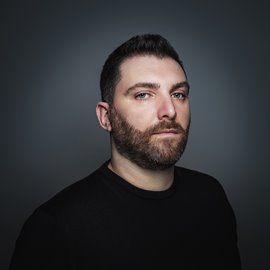Long-Term Projects - 1st Prize
Habibi
Antonio Faccilongo
Getty Reportage
Getty Reportage
17 August, 2015
Nael al-Barghouthi’s suit remains hanging in his bedroom in Kobar, near Ramallah, Palestine. Al-Barghouthi’s wife, Iman Nafi, keeps all her husband’s clothes and belongings in place. Al-Barghouthi was arrested in 1978 after an anti-Israel commando operation. He was released in 2011, married Iman Nafi, but re-arrested in 2014 and sentenced to life imprisonment. He has spent more than 40 years in prison—the longest-serving Palestinian inmate in Israeli jails.
Nearly 4,200 Palestinian security detainees are being held in Israeli prisons, according to a February 2021 report by human rights organization B’Tselem. Some face sentences of 20 years or more. To visit a Palestinian prisoner in an Israeli jail, visitors have to overcome a number of different limitations resulting from border laws, prison regulations, and restrictions set by the Israel Security Agency (ISA). Visitors are usually allowed to see prisoners only through a transparent partition, and talk to them via a telephone receiver. Conjugal visits are denied and physical contact is forbidden, except for children under the age of ten, who are allowed ten minutes at the end of each visit to embrace their fathers. Since the early 2000s, long-term Palestinian detainees hoping to raise families have been smuggling semen out of prison, hidden in gifts to their children. Semen is smuggled in a variety of ways, such as in pen tubes, plastic candy wrappers, and inside bars of chocolate. In February 2021, Middle East Monitor reported that the 96th Palestinian baby had been born using sperm smuggled from Israeli prison.
Habibi, which means ‘my love’ in Arabic, chronicles love stories set against the backdrop of one of the longest and most complicated conflicts in modern history. The photographer aims to show the impact of the conflict on Palestinian families, and the difficulties they face in preserving their reproductive rights and human dignity. The photographer chooses not to focus on war, military action, and weapons, but on people’s refusal to surrender to imprisonment, and on their courage and perseverance to survive in a conflict zone.

Antonio Faccilongo
Antonio Faccilongo is an Italian documentary photographer represented by Getty Reportage. He currently works as a photography professor at the Rome University of Fine Ar...
Through our education programs, the World Press Photo Foundation encourages diverse accounts of the world that present stories with different perspectives.
Our exhibitions showcase stories that make people stop, feel, think and act to a worldwide audience.
Our annual contest recognizes and rewards the best in photojournalism and documentary photography.
